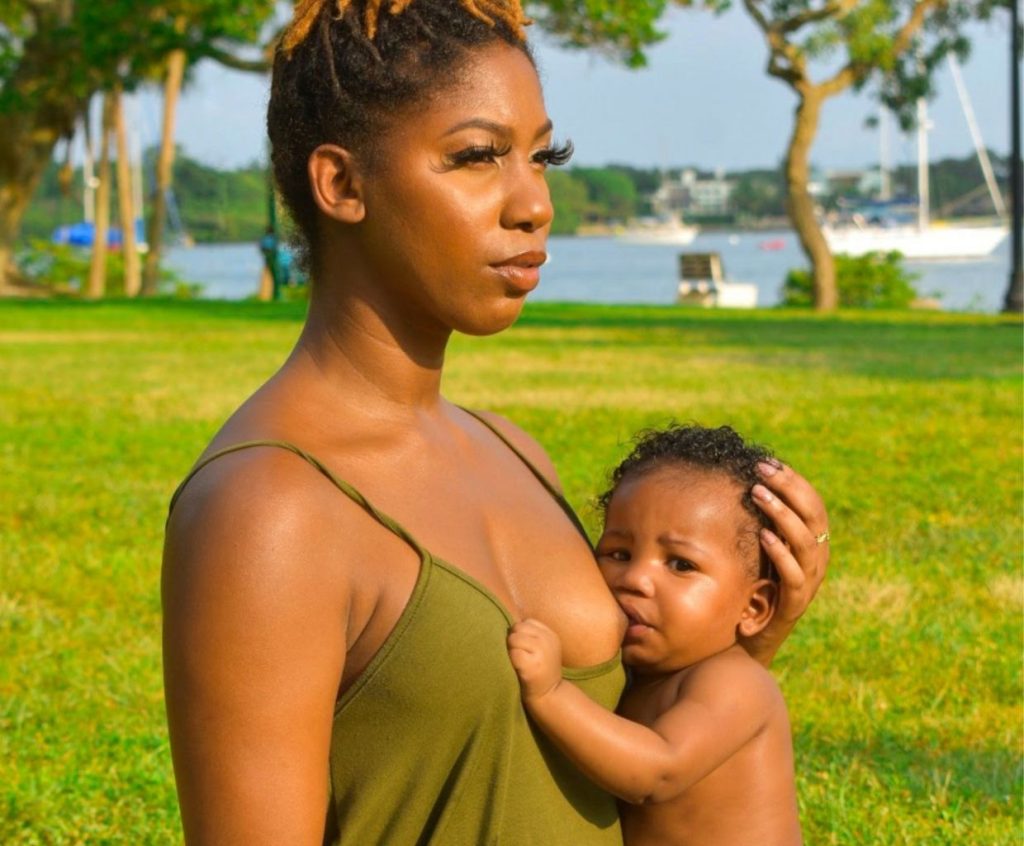Is Extended Breastfeeding Good or Bad For Your Baby?
Extended Breastfeeding is a term used when you are breastfeeding a child that is more than a year old. The World Health Organization (WHO) defines extended Breastfeeding as “any breastfeeding after six months and up to two years or beyond.”
Feeding a child beyond the first 12 months is typical in other countries. For example, the number of women who breastfeed their children beyond 12 months is 99% in Nepal, 98% in Malawi, 97% in Zambia, and 96% in Ghana. You can go to this UNICEF site for more worldwide breastfeeding statistics. In North America, breastfeeding an older child is somewhat rare. Perhaps “rare” is not the right word. It occurs, but you don’t SEE it often because women privately nurse their children.
Some North Americans perceive extended Breastfeeding as being “not right.” They have the misconception that there is a sexual relationship (or the potential of a sexual relationship) between mother and child. North Americans are not used to seeing an older child latched onto his mother’s breast. There is nothing wrong with extended Breastfeeding.
Benefits of Extended Breastfeeding
There are many benefits associated with extended Breastfeeding, such as improved cognitive development in children and decreased risk of allergies, infections, and illness, among others. Still, there are also some risks associated with it.
Primarily, the benefits of extended Breastfeeding are the same as those for breastfeeding a baby under one year of age. Breast milk contains:
- nutrients (for energy and growth),
- antibodies (for immunity)
- vitamins (for growth and development).
Thus, extended Breastfeeding continues to give him the nutritional benefits of breast milk. Breast milk may not be crucial for an older child since North Americans have relatively good diets (compared to, for example, a child’s diet in a poor, developing country).
However, extended Breastfeeding offers emotional benefits, too. It:
- soothes a child when he is upset or sad;
- gives a child comfort when he is sick or unwell;
- allows him to connect & bond with you after a day of play & learning;
- allows a child to become independent and have more self-confidence before he is weaned.
Problems with Extended Breastfeeding
Can extended Breastfeeding be harmful? According to the WHO, evidence suggests an association between prolonged Breastfeeding and iron deficiency anemia in infants aged 6-9 months old who are exclusively breastfed due to insufficient iron intake through their diet unless fortified cereals are introduced early on at 4-6 months of age.
Other risks associated with extended Breastfeeding include:
- Infections such as mastitis and thrush if a mother is not correctly hygienic when breastfeeding
- Low milk supply if a mother’s diet does not provide enough nutrients for her body to make enough milk for her child
- Nutrient deficiencies if the mother’s diet does not provide enough nutrients for her body to make enough milk for her child
- Weaning issues if a mother is not adequately prepared for weaning
- A mother’s emotional health can be affected by extended Breastfeeding if she has to deal with criticism due to her choice
- A mother may have to deal with criticism due to her choice
- Sleep deprivation if a baby is breastfeeding every two hours at night
The first and foremost problem mothers experience when breastfeeding an older child is disapproval. Most people in North America are surprised you are still breastfeeding a child older than one year old. Friends and family may express concern and ask questions that inadvertently make you feel bad about continuing to breastfeed. In public, strangers may be offended at your decision to breastfeed an older child and voice their concerns in a harsh and accusing tone.
To avoid these problems, you can breastfeed an older child in the privacy of your own home (only). This will allow you to continue breastfeeding without having to deal with criticism. Teach your child to say something else (like “I want a hug at home”) instead of yelling, “Mommy, I want breast milk now!”
Problems with Extended Breastfeeding – Weaning your baby
Another problem is that weaning an older child is often challenging. He understands that your breasts are available – they have been available for as long as he remembers – so why stop now? He does not understand or want to relinquish that special relationship between you and him. Unlike babies, an older child is more verbose and can whine, argue, and negotiate for days and days.
Some children can be bribed. For example, he will stop nursing, and in exchange, you will buy him a substantial toy that he has wanted for a long time.
For those who cannot be convinced to wean, you can try to initiate weaning during a significant event such as:
- going on a long trip,
- family or friends coming to visit and stay,
- him starting preschool or kindergarten.
You may use these events as an excuse as to why he can no longer breastfeed. Also, the excitement of travel or visitors may distract him enough to forget about Breastfeeding. Once weaned, he will not go back to the breast.
What is the longest a mother can breastfeed?
A mother can breastfeed her child for as long as she wishes, but this does not mean she needs to. The WHO says that “exclusively breastfeeding from birth until six months of age and continuing with complementary feeding with continued breastfeeding up to two years of age or beyond” is recommended for optimal infant growth, development, and health. It should be noted that exclusive Breastfeeding means that no other liquids or foods are given to the infant during this period.
The World Health Organization recommends that mothers breastfeed their children exclusively for six months, then continue breastfeeding while introducing complementary foods until the child is two years old. However, many mothers choose to continue breastfeeding past that point.
Extended Breastfeeding – summary
The current research on extended Breastfeeding isn’t clear on whether it harms your child or yourself. Some studies show that extended Breastfeeding can be beneficial in several ways: It may help your child gain immunity against certain illnesses, lower their risk for allergies and asthma, and reduce their risk for diabetes later in life. However, some studies show some adverse effects of extended Breastfeeding on the mother’s health. For example, it may increase her risk for breast or ovarian cancer.
There are no current recommendations about how long mothers should breastfeed their children, as it largely depends upon each family’s unique circumstances and needs at any given time. However, we know that it’s possible to breastfeed too much—and that overfeeding can lead to weight gain (which could be problematic if you’re breastfeeding a toddler).



